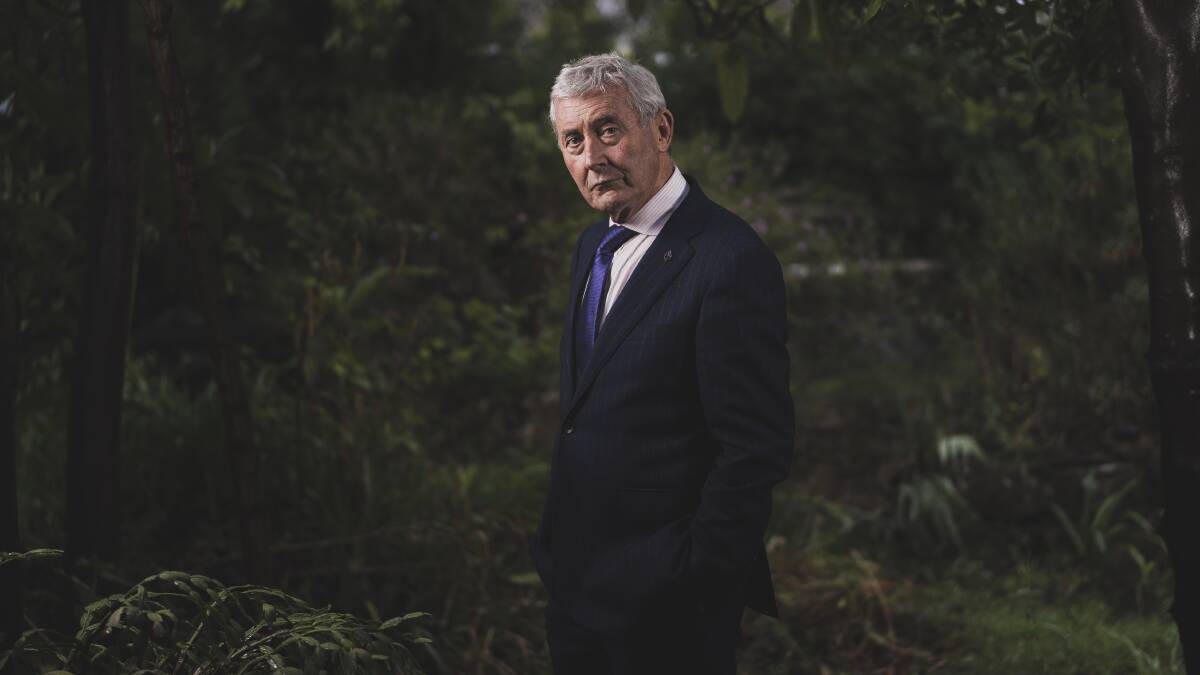
The case of a Canberra lawyer accused of breaching national security laws appears set to proceed as planned after an ACT Supreme Court judge said it was not yet possible to say the coronavirus pandemic would preclude a fair hearing.
Subscribe now for unlimited access.
or signup to continue reading
Bernard Collaery is fighting allegations that he conspired with the former spy known as Witness K to reveal classified information about a secret operation in which Australian Secret Intelligence Service spies bugged East Timor's cabinet room during sensitive oil and gas negotiations.
Concerns about the impact of COVID-19 on the case were raised at a pre-trial hearing on Thursday, though Mr Collaery's defence did not formally apply to vacate a preliminary hearing listed to take place next month.
On Friday, Justice David Mossop said that, for the time being, the case would go ahead on schedule.
He said it was not yet possible to say that COVID-19 would preclude Mr Collaery receiving a fair hearing, though the court would need to continue monitoring the situation.
Justice Mossop said if the April hearing dates were vacated, it was unclear when the matter would be able to proceed, and even under normal circumstances it could be several months before new dates could be found.
"It is not appropriate to vacate or otherwise alter the existing hearing dates," he said.
"The court is, at the moment, continuing to conduct oral hearings."
Justice Mossop's comments came after Mr Collaery's barrister, Phillip Boulten SC, told the court on Thursday that one of his instructing solicitors was already unable to participate in proceedings because of COVID-19.
READ MORE:
Mr Boulten also indicated that witnesses Mr Collaery would rely upon may be unable to come to Canberra to give evidence because some were overseas and many of those within Australia were older people who would be reluctant to travel because they were at an enhanced risk if they contracted the coronavirus.
Jeremy Kirk SC, for the Commonwealth Attorney-General, noted that much of the evidence given at the April hearing would touch on national security issues.
He said if witnesses were required to give oral evidence from remote locations, the security around audio-visual link and telephone arrangements may not suffice given the sensitivity of the issues.
Mr Kirk also said the overseas witnesses Mr Collaery's defence intended to rely upon would not be required for cross-examination, and would therefore not need to attend court in person.
A barrister for the Commonwealth Director of Public Prosecutions said it was incumbent upon legal practitioners to find ways to push ahead during the health emergency unless the ACT Supreme Court stopped hearing cases entirely.
Many Australian courts have taken drastic steps to combat the spread of COVID-19. Among them are the High Court, which has decided not sit in Canberra or on circuit between April and June in response to the pandemic.
The ACT courts continue to operate, though they have adopted "social distancing" measures and minimised the number of people attending court by having people appear remotely where possible. The Magistrates Court will also pause some matters, starting next week.

